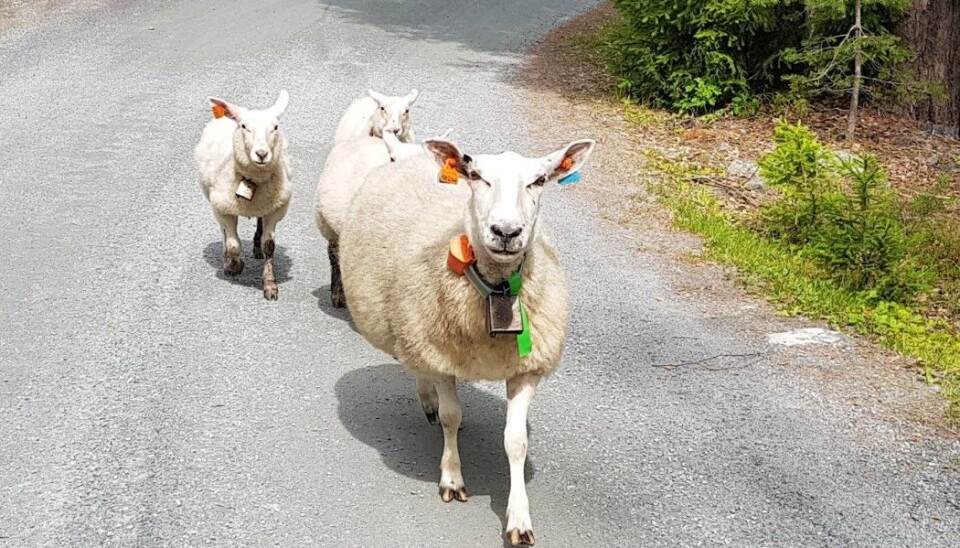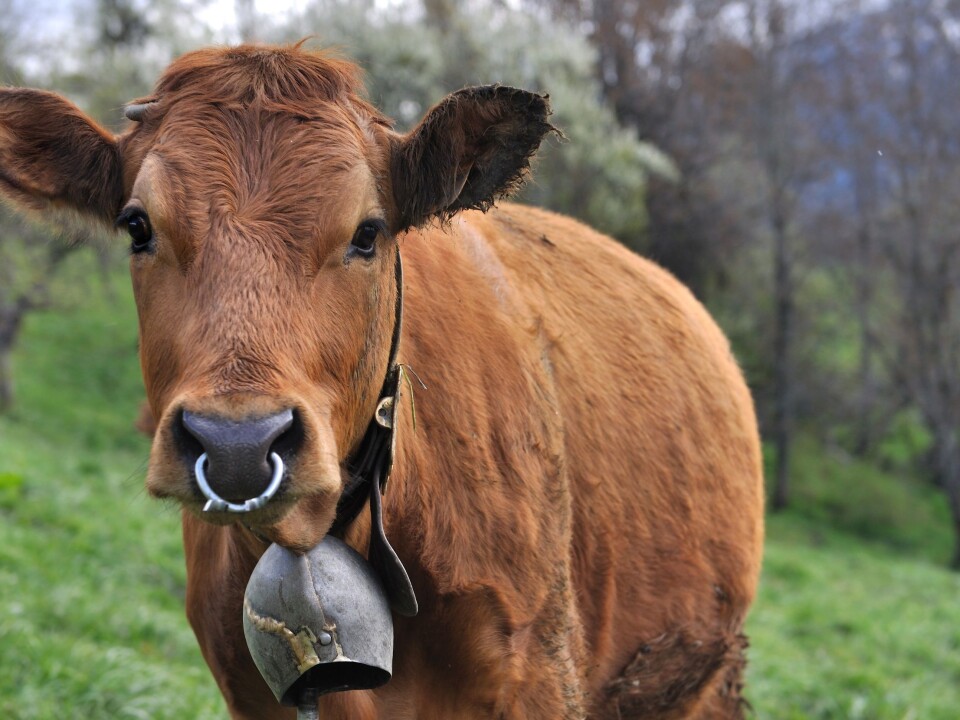
How annoying is it for sheep to wear a bell all summer long?
Do sheep bells qualify as mistreatment of animals?
The tinkling of sheep bells is a very common part of summer in the Norwegian mountains. The sound evokes free grazing animals on open green mountainsides or out in the woods.
The bells, of course, allow the animals to roam freely and to be found when it comes time to bring them back to village-based pastures in the autumn.
But what effect does the bell have on an animal that has to constantly wear it around its neck?
Finding the answer to this question turns out to be harder than you might guess.
Possible hearing damage

Christian Ellingsen-Dalskau at the Norwegian Veterinary Institute has looked into this issue. He bought himself a sheep bell to test the sound level.
“Without shaking the bell very hard, I measured the sound at well over 100 decibels. Sheep wear bells around their necks, close to their ears, so the sound must be loud,” he says.
For humans, 100 decibels corresponds to something between urban traffic and loud thunder, according to the Norwegian National Association for the Hearing Impaired.
According to animal welfare regulations from the Ministry of Agriculture, sheep should not be exposed to unnecessary noise. The noise level must be low enough that the animals do not feel uncomfortable. Noise levels over 65 decibels are prohibited.

“When the bell sound is so loud, it will probably lead to hearing damage,” Ellingsen-Dalskau believes.
What does the sheep hear?
Inger-Lise Andersen at the Norwegian University of Life Sciences (NMBU) also believes that the noise level from bells is above what is comfortable for sheep. And although she has not studied bell sounds, she has investigated how other noises affect pets, such as explosions and aircraft noise.
“We are the first to have studied the effects of aircraft noise on livestock, and the results showed that sheep seem very adaptable. We estimated that 90 decibels was their physical pain limit,” she said.
But do sheep hear the same thing as us humans? Does noisy city traffic or the constant ringing of bells sound the same to sheep as to humans?
It turns out that sheep hearing isn’t an area with a lot of research, so the short answer is that no one really knows.
“It may be that they get used to the sound of the bells, just as we humans get used to the noise around us,” says Vibeke Lind, a researcher at the Norwegian Institute for Bioeconomy (NIBIO).
Are bells necessary?
The obvious reason that farmers put bells on the livestock is to be able to find them when they are out in far-flung pastures, grazing. Norwegian farmers have done this for generations.
Farmers may do this more because of tradition than the actual need to use bells, Lind said.
“It’s a very strong tradition in Norwegian agriculture, for better or worse,” she said.
However, there are alternatives to the low-tech bell, such as electronic fences and e-bells equipped with a GPS.
These alternatives have been studied and tested, not because of concerns about bell levels, but because the technology provides benefits to farmers, whether they are working with sheep, cattle or reindeer.
The e-fences keep the flock together in one area and farmers have better control over pasture use, while a GPS e-bell allows farmers to keep track of where the animals are located.
But these electronic approaches cost more than a bell, and are less robust.
“The more technology you have, the more vulnerable you are. If we had a GPS signal in all mountains and valleys, the e-bell could be an alternative. But Norway does not have full coverage, and many areas have no coverage. These areas are often the same places where animals graze in the summer,” says Lind.
Calling in predators to dinner
Then there’s the question of predators. Are animals with bells more or less attractive to bears, wolves and wolverines? After all, for a predator, a sheep with a bell is essentially food that advertises its location with sound.
Lind thinks a bell makes an animal both more and less attractive.
“If bears have learned that the bell sound means food, that’s a clear disadvantage for the sheep. But we also don’t know for certain whether sheep bells attract or repel predators. It is possible that it varies from area to area, based on what the predators have become used to,” she said.
Andersen believes that predators’ sense of smell is more important than the bell sound.
“Bells may disturb predators, preventing sheep from being attacked,” she said. “In any event, predators can smell sheep for several kilometres, so the bell isn’t essential for predators to locate their prey.”
Ellingsen-Dalskau from the Veterinary Institute says one report from the Norwegian Institute for Nature Research (NINA) suggests that predators take more sheep with bells than those that do not.
“The report suggests that the bears are annoyed by the perpetual bell sound, so they slaughter the entire herd,” he said.
All three scientists agreed: these are valid questions that need more study.
-------------------------------






























